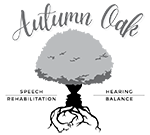Choose These Foods for Better Hearing Health
Jul 09, 2019“The fork is your most powerful tool to change your health and the planet; food is the most powerful medicine to heal chronic illness.”
-Mark Hyman, M.D.
Food and nutrition are at the forefront of the health conversation these days and for a good reason. The link between what we eat and risk of so many conditions, including heart disease, cancer and diabetes has been shown in research again and again. People around the world are looking to food for health benefits, but did you know that your diet could also impact your hearing health?
Supporting your hearing health, one forkful at a time may be easier than you think!
Fill your plate with these foods
While certain foods, vitamins and minerals have been connected to better hearing health, an overall healthy diet provides a crucial foundation. Studies like this indicate that it may rank right up there with noise exposure in importance and studies like this underline how a healthy diet can reduce the risk of hearing loss.
In general, fill your plate with:
- Whole grains
- Fruits and vegetables
- Lean proteins
- Healthy fats in recommended amounts
These types of foods can support overall health by supporting the cardiovascular system and reducing inflammation throughout the body, but there’s more you can do when it comes to eating for healthy hearing.
Focus on these foods for hearing health
While it’s smart to follow a healthy total diet, some of the newest research points to particular nutrients that are especially powerful in supporting hearing health (and reducing the risk of hearing loss). While more studies are needed, it’s hard to find a downside in adding vitamins, minerals and foods like these to your diet to boost hearing health:
- Omega 3 fatty acids – While it’s unclear the exact link, in the Blue Mountains Hearing study, researchers identified a connection between how much fatty fish individuals ate and their risk of hearing impairment. The more salmon, mackerel, herring, black walnuts, flaxseed oil and similar omega 3-rich foods people ate, the lower their risk of hearing loss.
- Folate – Found in dark leafy greens (think spinach and arugula), artichokes, fortified breakfast cereal, beans and other legumes, studies have found that skimping on folate can negatively impact blood flow to the inner ear increasing the risk of hearing loss.
- Magnesium + Vitamins A, C, E – Combine this mineral and these vitamins, and you’ve got a powerhouse for hearing health according to a recent study. Working together, these vitamins and mineral may help protect against loud noises by reducing the free radicals that begin circulating after noise exposure. Those are the same free radicals that can damage the inner ear. Getting more is as easy as adding avocados, nuts and seeds, whole grains, tofu, red sweet peppers, salmon, eggs, sweet potato, guavas, and even dark chocolate to your meals, to name a few.
- Potassium – This mineral works in harmony with sodium to help regulate fluid within the body. That includes the fluid of the inner ear. Without this important fluid, electrical impulses cannot be transmitted, and hearing is impaired. To make sure you’re getting enough potassium, add foods such as potatoes, chard and white beans to your diet.
Take steps to support your hearing health today by adding foods like these to your diet.
If you’d like to learn more ways to help protect your hearing and prevent hearing loss, contact our office. We can work with you to schedule a hearing evaluation, treat any hearing loss, and give you ideas to support your hearing.


